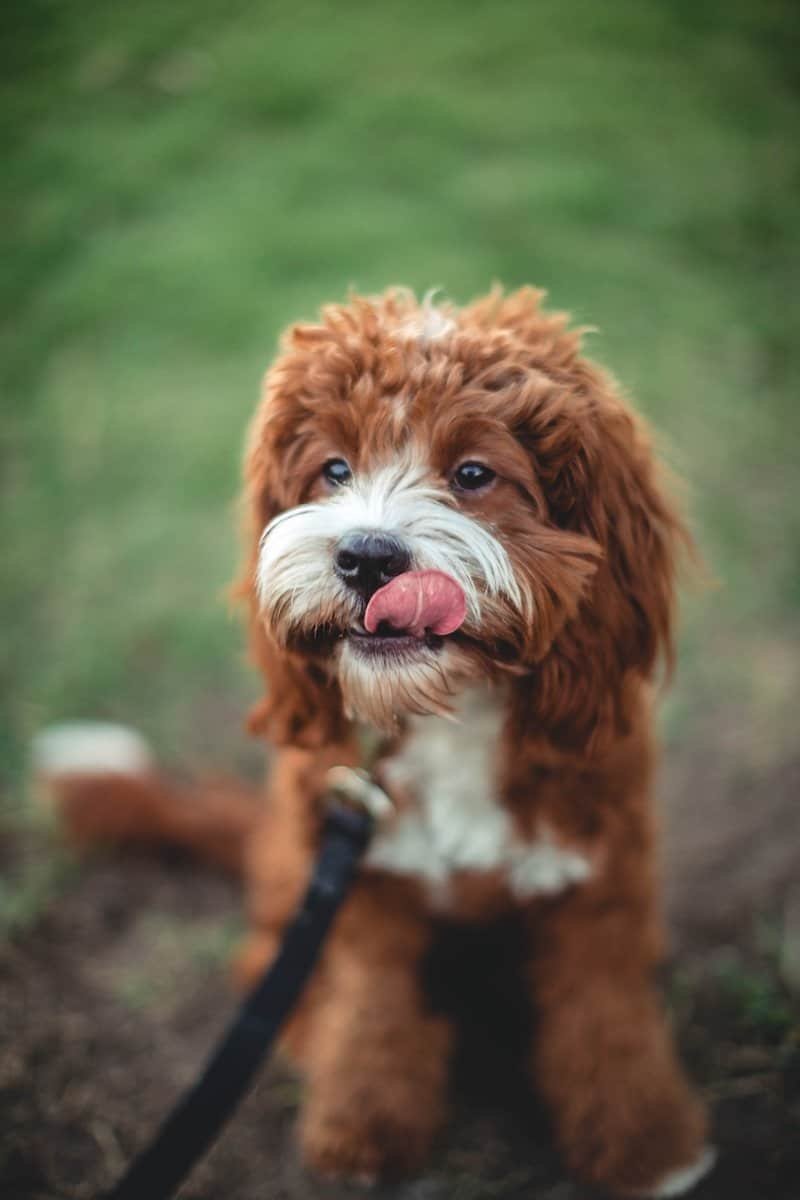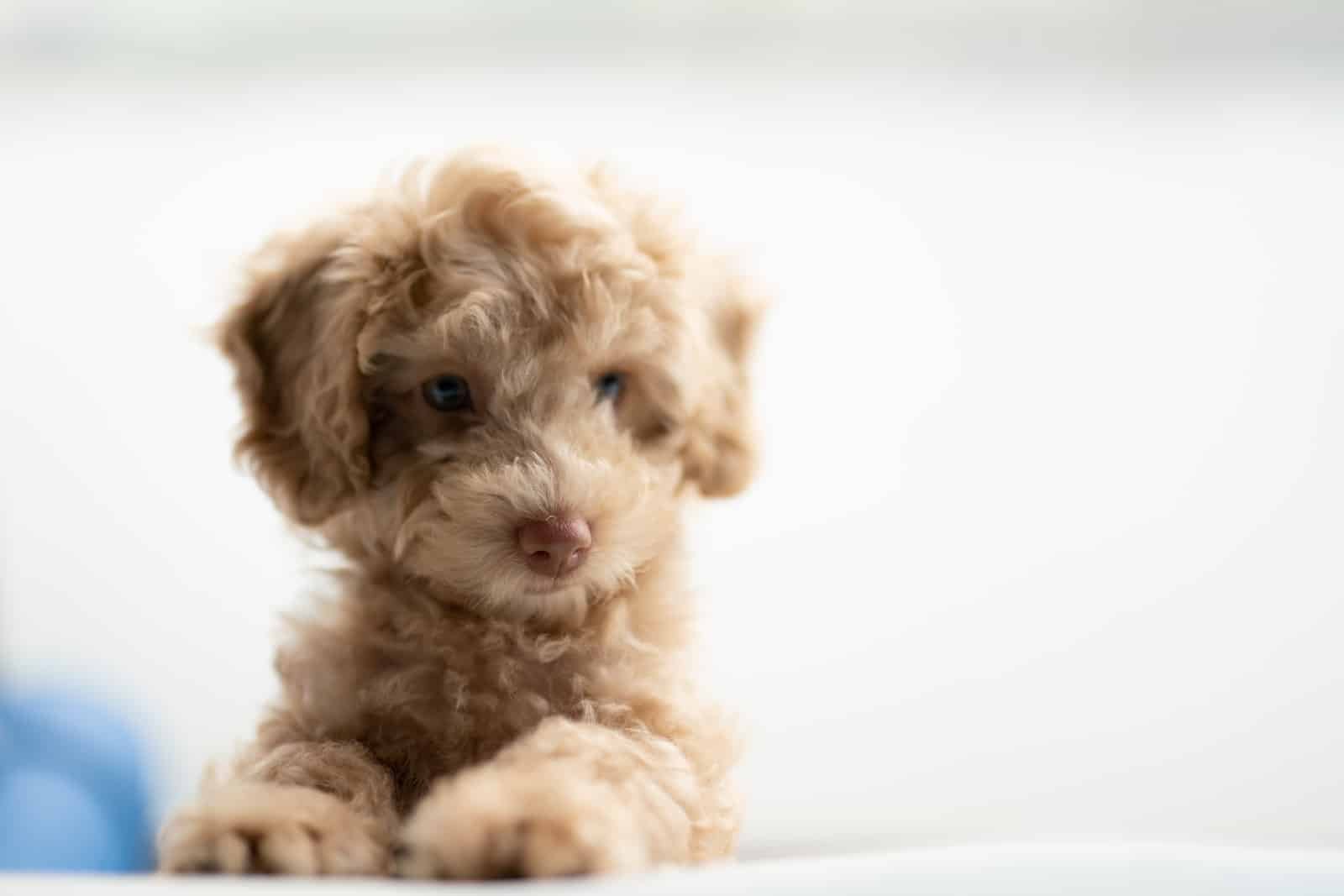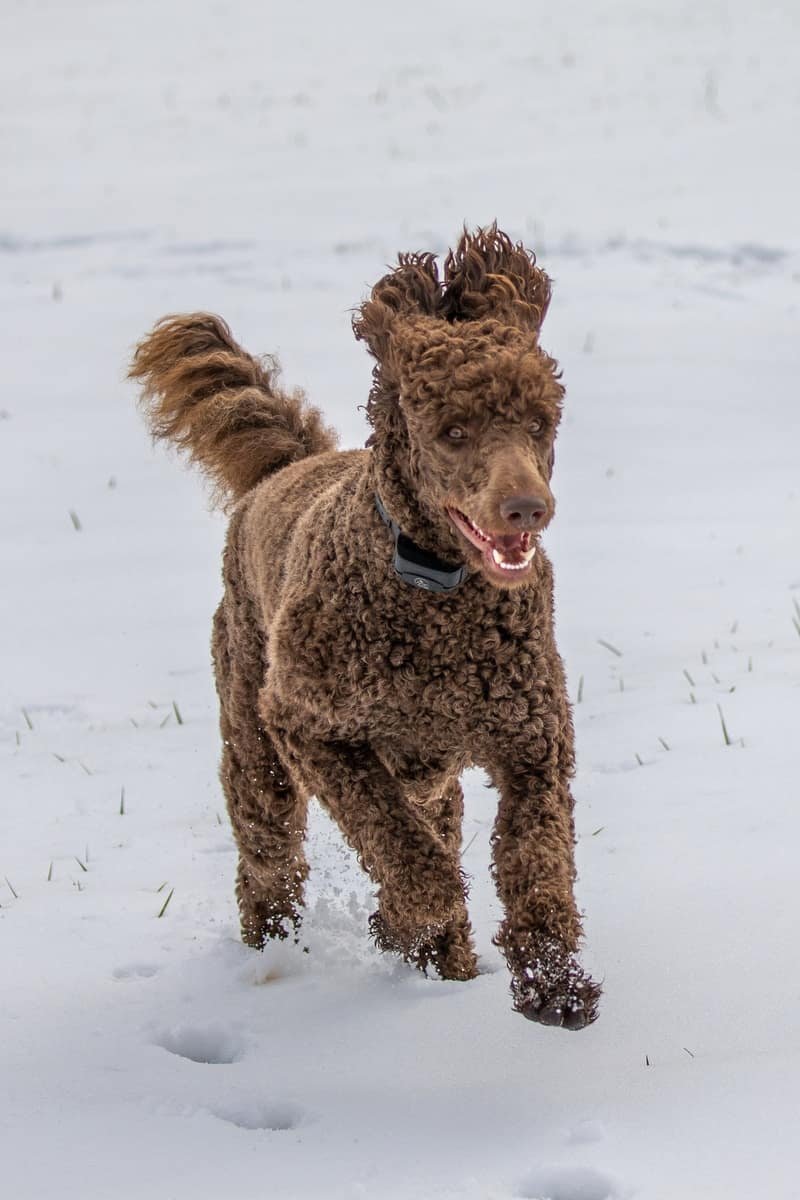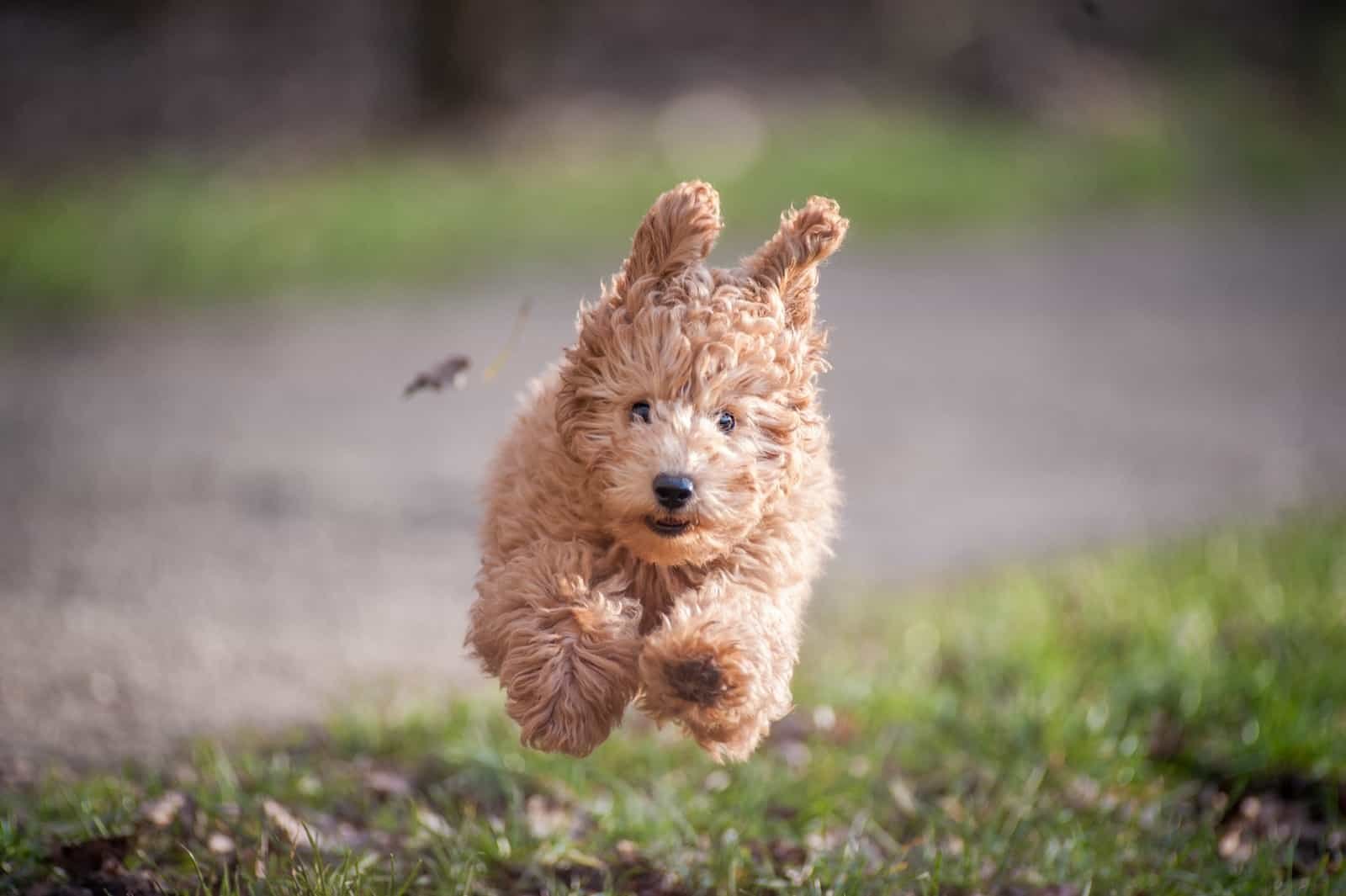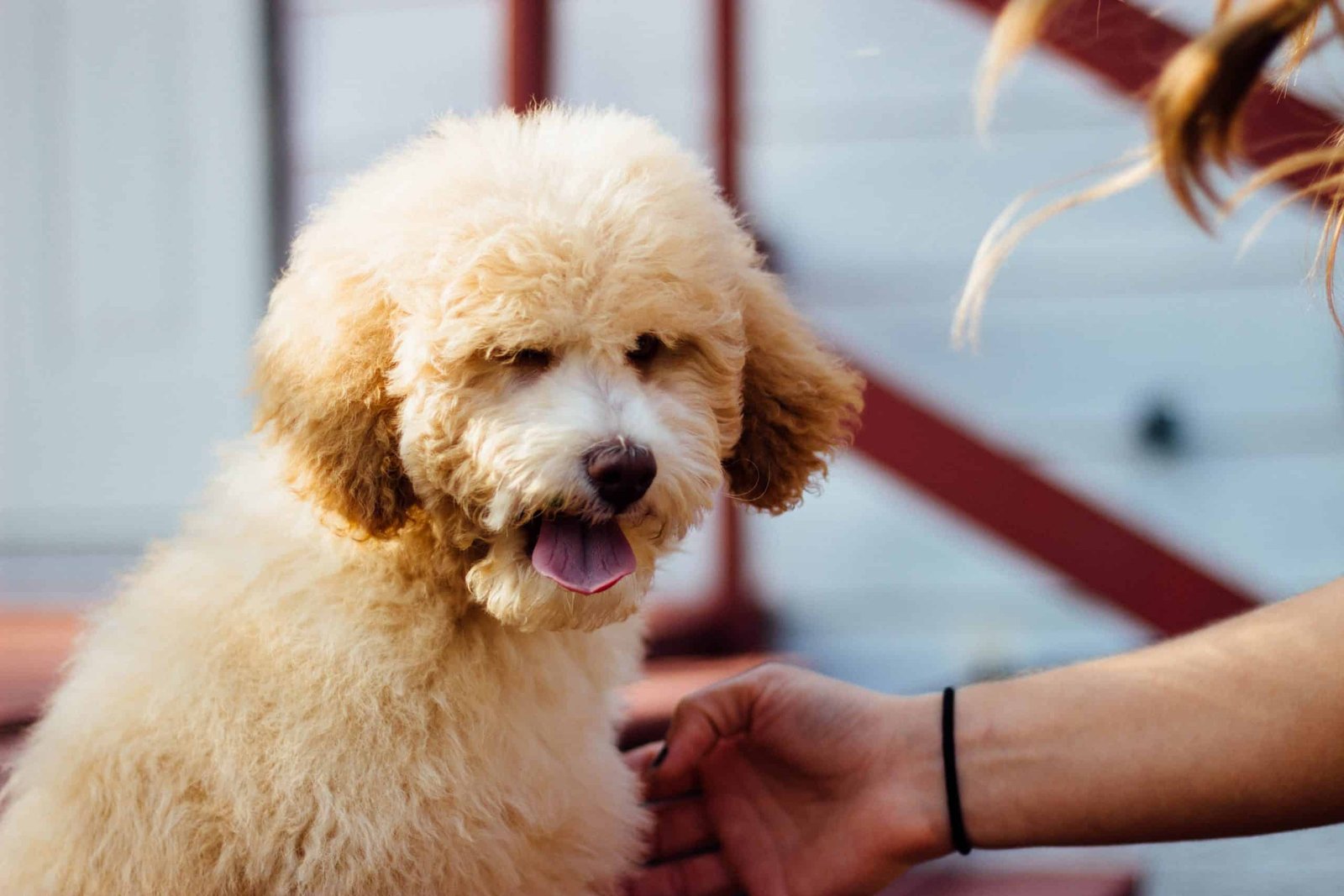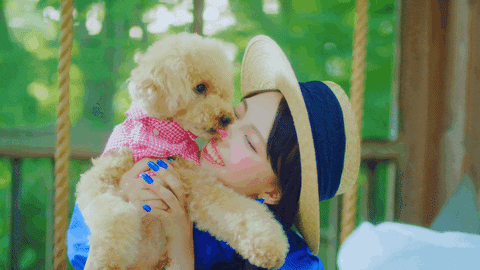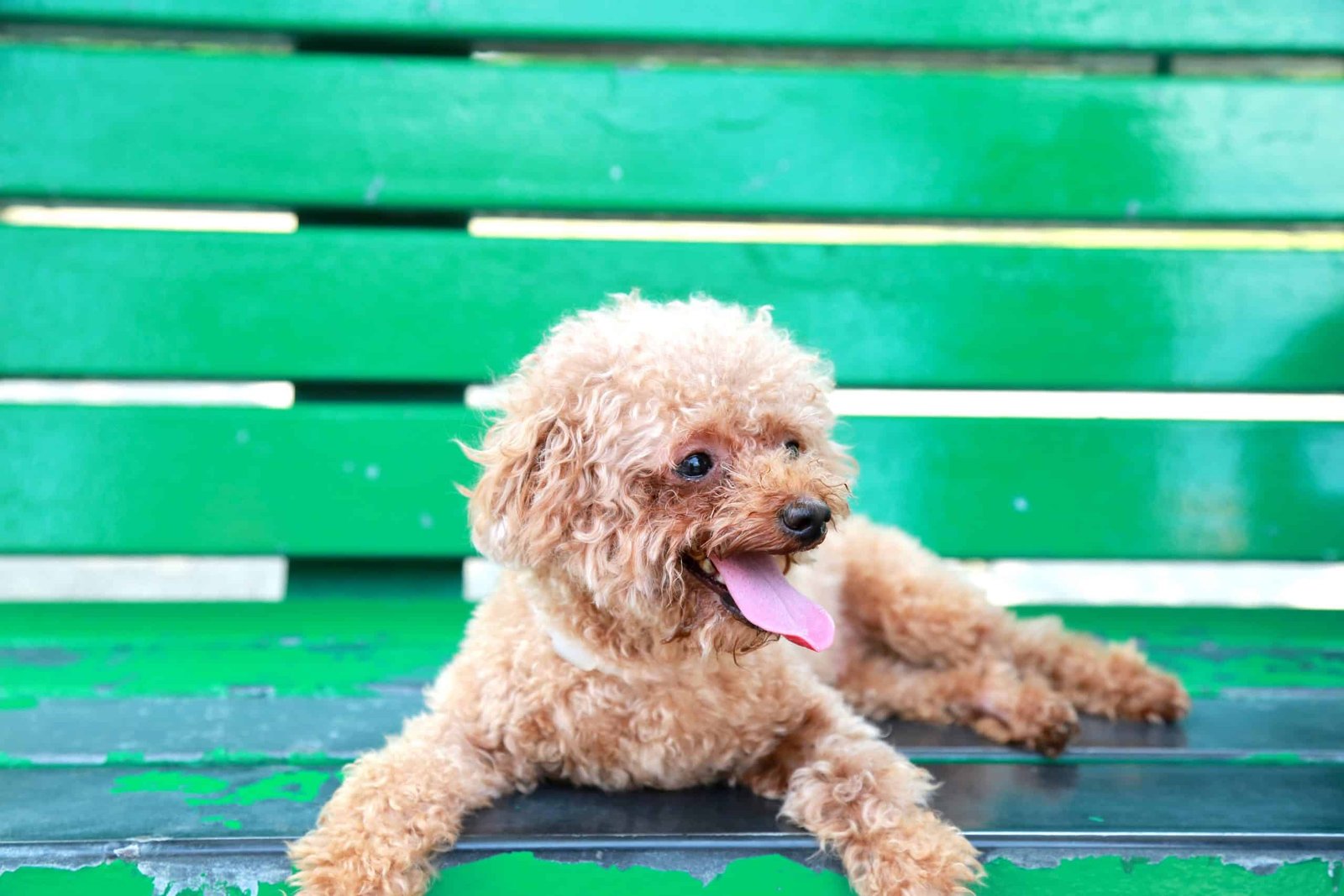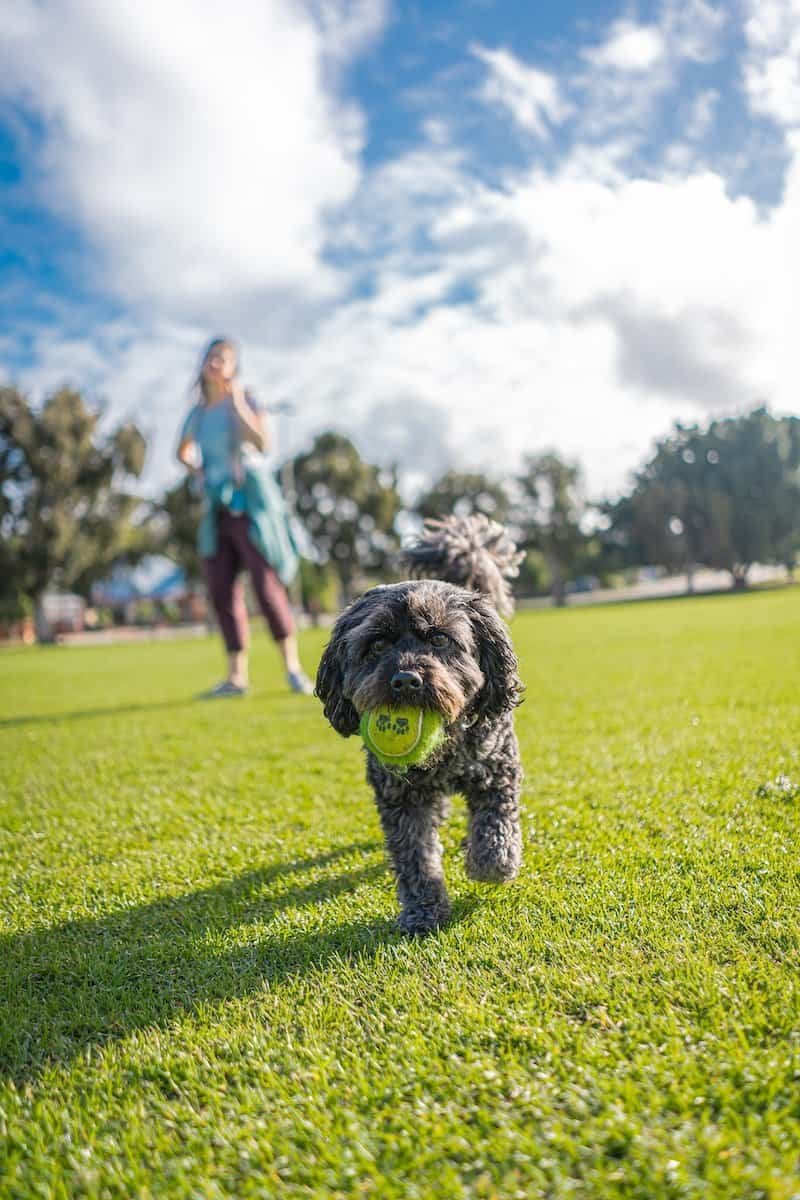
About This Guide
- Real Experience: Written by poodle enthusiasts with years of hands-on experience caring for and training poodles.
- Expert Reviewed: Content verified by certified dog trainers and veterinary professionals.
- Fact-Checked: Information sourced from the AKC, veterinary journals, and breed specialists.
- Last Updated: November 2025
Understanding Your Poodle
Quick Start: Follow these steps for best results with your poodle.
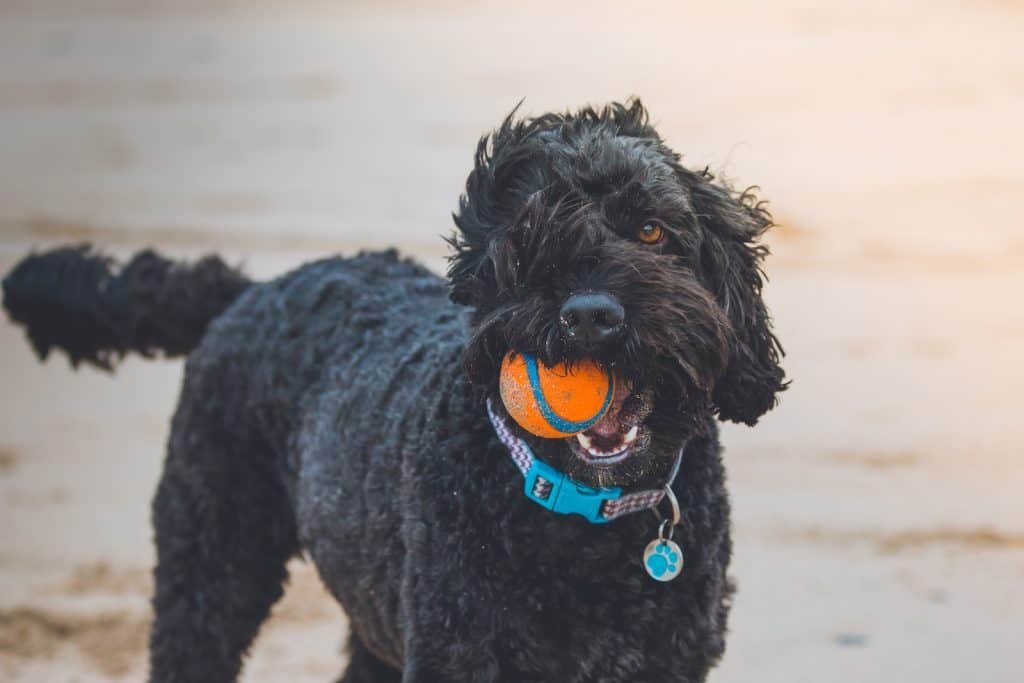
When embarking on advanced training with your Poodle, you must recognize the unique characteristics of this breed. Poodles come in three sizes—Toy, Miniature, and Standard—each with their own specific needs and traits.
Toy Poodles are the smallest, flourishing with consistent engagement in a loving environment. Miniature Poodles share a similar vivacity but can exhibit slightly more independence. Standard Poodles are the largest, often regarded as noble and exceptionally trainable due to their balanced temperament.
Across all varieties, Poodles possess a high level of intelligence which makes them adept at learning complex commands and tricks. Their intelligence also means they require regular mental stimulation to stay content and well-behaved.
Here are some key points about Poodle temperament and personality:
- Intelligence: Highly intelligent and eager to learn
- Trainability: Excellent; responds well to positive reinforcement
- Personality: Friendly, alert, and active
- Temperament: Adaptable but requires consistent training
To effectively train your Poodle, your approach must be tailored to their size and individual personality. Standard Poodles can handle longer training sessions, while Toys and Miniatures may benefit from shorter, more frequent ones. Remember that your Poodle is sensitive to your tone of voice, and positive reinforcement is far more effective than harsh corrections.
Essential Training Principles
When embarking on the journey of advanced training with your Poodle, there are fundamental principles that must be at the heart of your efforts. The cornerstone is consistency; ensure your commands are unchanged and your training schedule is regular.
Positive reinforcement is another key element. Always offer praise or treats for correct behavior, encouraging your Poodle to repeat those actions.
Incorporate patience into your training routine. Understand that success won’t come overnight; it requires time for your Poodle to learn and perfect new skills. Be prepared to repeat commands slowly and gently until they are mastered. Every command should be given in a clear, firm tone to convey your expectations.
Rewards play a crucial role in training. They can range from verbal affirmations, such as “Good job!”, to physical rewards like a favorite toy or a tasty treat.
This not only cements desired behaviors but also helps in strengthening the bond you share with your Poodle. Your pet’s trust in you grows with each positive experience, which in turn fosters respect and promotes a well-behaved, obedient companion.
Remember, trust is a two-way street. By demonstrating respectful and consistent behavior yourself, you set the standard for your dog. This mutual respect is the foundation of an effective training strategy and can be further explored in guides with Poodle training tricks. Training with kindness and structure ensures a happy, disciplined, and mentally stimulated Poodle.
Advanced Obedience Training
Advanced obedience training for your Poodle goes beyond the basics, diving into more complex commands that require precise execution. This stage is crucial for enhancing performance, reducing anxiety through mental stimulation, and refining your Poodle’s responsiveness.
Complex Commands
Complex commands involve a sequence of actions or behaviors that your Poodle must follow.
Begin with commands like heel, where your dog learns to walk beside you with their head level with your leg.
You can then progress to leave it, training your Poodle to ignore distractions until given permission.
Another valuable command is go to your mat, teaching your dog to settle in a specific location, which can be particularly useful in managing anxiety in various situations.
- Make sure to practice these commands in different environments so your Poodle can follow them despite distractions.
- Establish a signal for each action, and use treats and praise to reinforce these behaviors.
Precision and Performance
For your Poodle to execute obedience commands with precision, you must focus on the fine details of each behavior.
- Heel: Your Poodle should match your pace, stop when you stop, and transition smoothly with your movements.
- Leave It: Ensure your Poodle maintains focus on you until you release them.
Incorporate duration, distance, and distractions gradually to improve your Poodle’s performance and obedience.
- Duration: Build your dog’s ability to hold a command over time.
- Distance: Practice commands with increasing distance between you and your Poodle.
- Distractions: Introduce new variables slowly to test and improve focus.
Behavioral and Socialization Skills
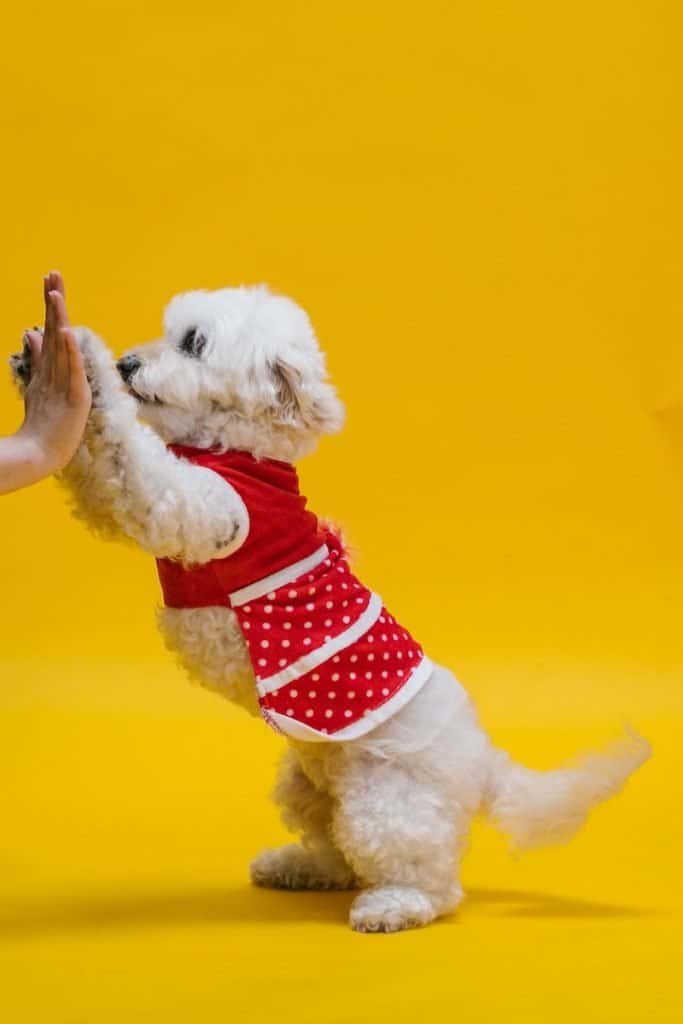
When training your Poodle, it’s crucial to focus not only on basic commands but also on behavioral and socialization skills.
Early exposure to various environments, people, and animals can help your Poodle develop into a well-adjusted adult. Your aim should be to reduce anxiety, prevent fear, and curb any signs of aggression that might stem from unfamiliar situations.
Start by introducing your Poodle to different locations.
Frequent, controlled visits to parks, pet-friendly stores, and neighborhoods can enhance their adaptability.
When faced with distractions like loud noises or crowds, maintain a calm demeanor to set an example for your Poodle.
Here’s a quick overview of behavioral socialization:
- Positive Reinforcement: Always use praise or treats to reward calm and friendly interactions.
- Controlled Introductions: Gradually present your Poodle to new people and fellow animals to prevent overwhelming them.
- Consistent Exposure: Simulate various scenarios at home so your Poodle can get accustomed to different situations.
| Age | Focus | Goal |
|---|---|---|
| Puppyhood | Introducing basic settings | Comfort with familiar people and pets |
| Adolescence | Expanding environments | Confidence in various locations |
| Adulthood | Refining responses | Mastery of calm behavior in all contexts |
Consistently work on behavioral issues such as barking or jumping by addressing them promptly.
Teach commands like ‘quiet’ or ‘down’ to manage these behaviors.
Remember, Poodles respond well to challenges that engage their intelligent minds.
Your training sessions should always incorporate new, thought-provoking activities that prevent boredom and anxiety.
Agility and Physical Training
Enhancing your Poodle’s physical capabilities requires targeted agility and physical training exercises that focus on their unique strength and coordination needs.
Improving Agility
To elevate your Poodle’s agility, tailor agility training routines to their size and skill level.
Distinct activities such as maneuvering through tunnels and slalom poles robustly engage their mind while significantly improving problem-solving skills.
Begin with simple obstacle courses, gradually introducing more complex configurations to challenge their agility and encourage adaptability.
Strength and Coordination
Meanwhile, enhancing your Poodle’s strength and coordination involves a combination of exercises.
Leash training on varied terrains can promote muscle development and improve their coordination.
Additionally, incorporate activities that necessitate jumping and climbing to bolster their muscle tone, thereby advancing their strength and physical prowess.
Trick Training and Entertainment
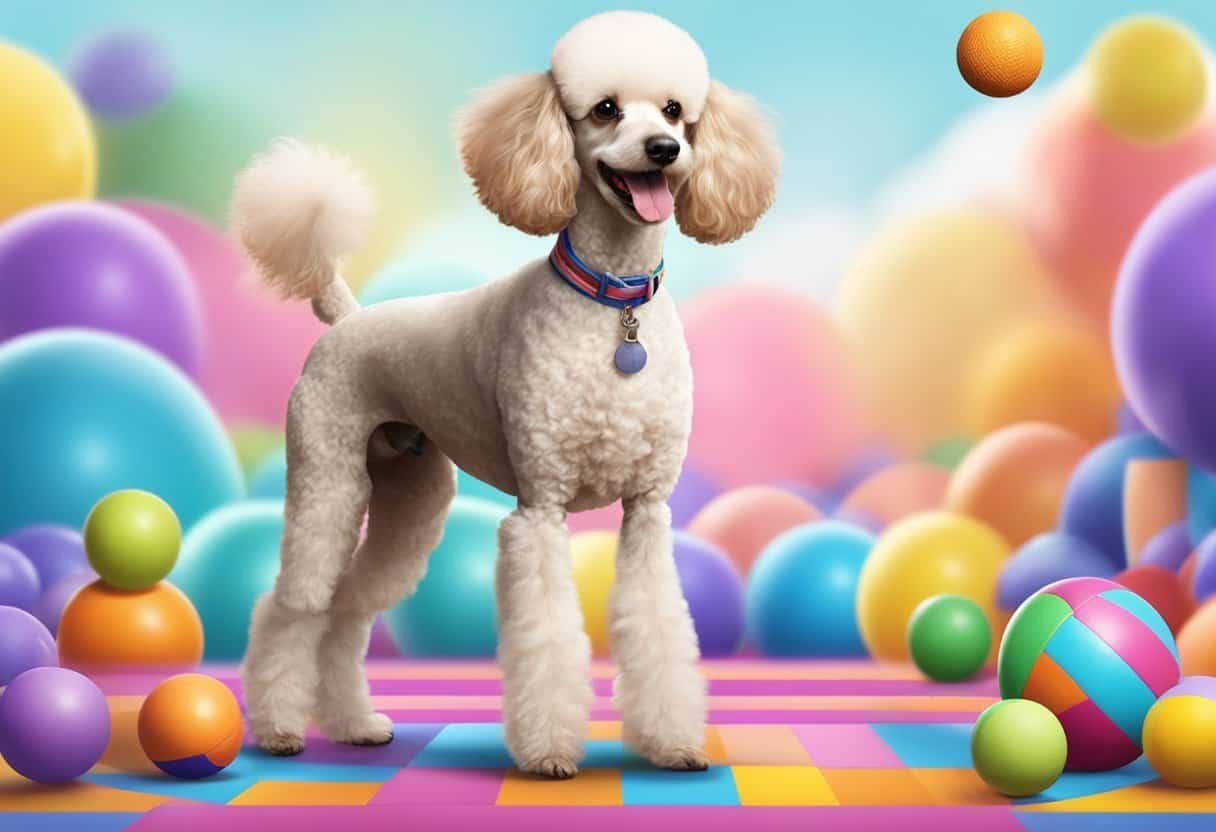
When advancing your poodle’s training repertoire, integrating trick training is a fantastic way to fuse entertainment with skill development.
Tricks serve as mental workouts for your poodle while strengthening the bond between you. Here’s a brief guide to help you navigate this enjoyable training phase:
Basics First: Before tackling advanced tricks, ensure your poodle has a firm grasp on basic commands such as sit, stay, and lie down.
Progressive Learning: Start with simpler tricks like roll over or fetch and gradually introduce more complex ones like spin.
Steps for Teaching ‘Roll Over’:
- Command your poodle to “lie down.”
- Hold a treat by their nose and slowly guide it around their shoulder so they have to turn to follow it.
- As they complete the roll, say “roll over,” and reward immediately.
Spin Training Tips:
- Initiate the spin with a treat in hand, luring your poodle in a circular motion.
- Pair the motion with a verbal cue, such as “spin.”
- Gradually reduce the reliance on treats, transferring to verbal cues and hand signals.
Interactive Play: Convert training into a game to make it more exciting. Use toys to teach fetch, hiding treats for your poodle to seek out, or setting up mini agility courses.
Managing Expectations: Not every poodle will respond equally to the same trick, so tailor your training to your dog’s preferences and pace.
With consistent practice, patience, and positive reinforcement, you’ll enhance your poodle’s abilities and deepen your reciprocal enjoyment of playtime.
Training Tools and Equipment
When advancing your Poodle’s training, equip yourself with the right tools to ensure an effective and efficient learning experience. Here’s a concise list to guide your selection:
Collars: Choose a comfortable, adjustable collar tailored to your Poodle’s size. An appropriately fitted collar is vital for safety and control during walks.
Leashes: Your leash should be sturdy and of a length that allows you control without impeding your Poodle’s movement. A 6-foot leash often works well for training exercises.
Clickers: Clicker training promotes positive reinforcement. Clickers are effective tools for marking desirable behaviors, signaling to your Poodle the exact moment they’ve done something right.
Crates: Crate training assists in housebreaking and creating a safe haven. Crates are also useful for teaching your Poodle to settle and relax in their own space.
| Training Tool | Description | Use Case |
|---|---|---|
| Collar | A fitting collar ensures control and safety. | Use during walks and as an attachment for ID. |
| Leash | Promotes good walking habits and control. | Necessary for outdoor training sessions. |
| Clicker | Marks desired behavior with a distinct sound. | Use for obedience training and new commands. |
| Crate | Acts as a safe space for your Poodle. | Ideal for potty training and preventing anxiety. |
Grooming and Care Considerations
When grooming your poodle, you want to prioritize safety and achieve visually pleasing results. The nature of a poodle’s coat necessitates regular maintenance to prevent matting and maintain its health. Professional groomers often recommend a routine that includes both brushing and bathing.
Weekly Brushing
Brush your poodle at least once a week. Use a slicker brush to glide through the coat, followed by a metal comb to reach the undercoat and avoid mats. Remember to brush thoroughly, as poodles have dense coats that can easily tangle.
Bathing
- Frequency: Bathe your poodle every 3-6 weeks.
- Shampoo: Choose a mild shampoo designed for dogs.
- Technique: Gently clean the coat, paying particular attention to avoid water in the ears.
Clipping
- Regular haircuts are needed every 4-6 weeks.
- Styles: Familiarize yourself with styles such as the Puppy Cut or Continental Clip.
Schedule regular visits with a professional groomer who is experienced in poodle grooming if you’re not confident in handling clippers and shears.
Ear Care
- Check your poodle’s ears weekly.
- Clean gently with a vet-approved solution to prevent infections.
Pro Tip: Start a grooming routine early in your poodle’s life. This ensures your poodle becomes comfortable with the process and looks its best.
Tools and Supplies
- Slicker Brush
- Metal Comb
- Professional-grade Clippers
- Dog-friendly Shampoo
- Ear Cleaning Solution
Enlisting the help of a professional groomer can provide not just a safe grooming experience but also advice tailored to your poodle’s coat condition and lifestyle needs.
Nutrition and Health
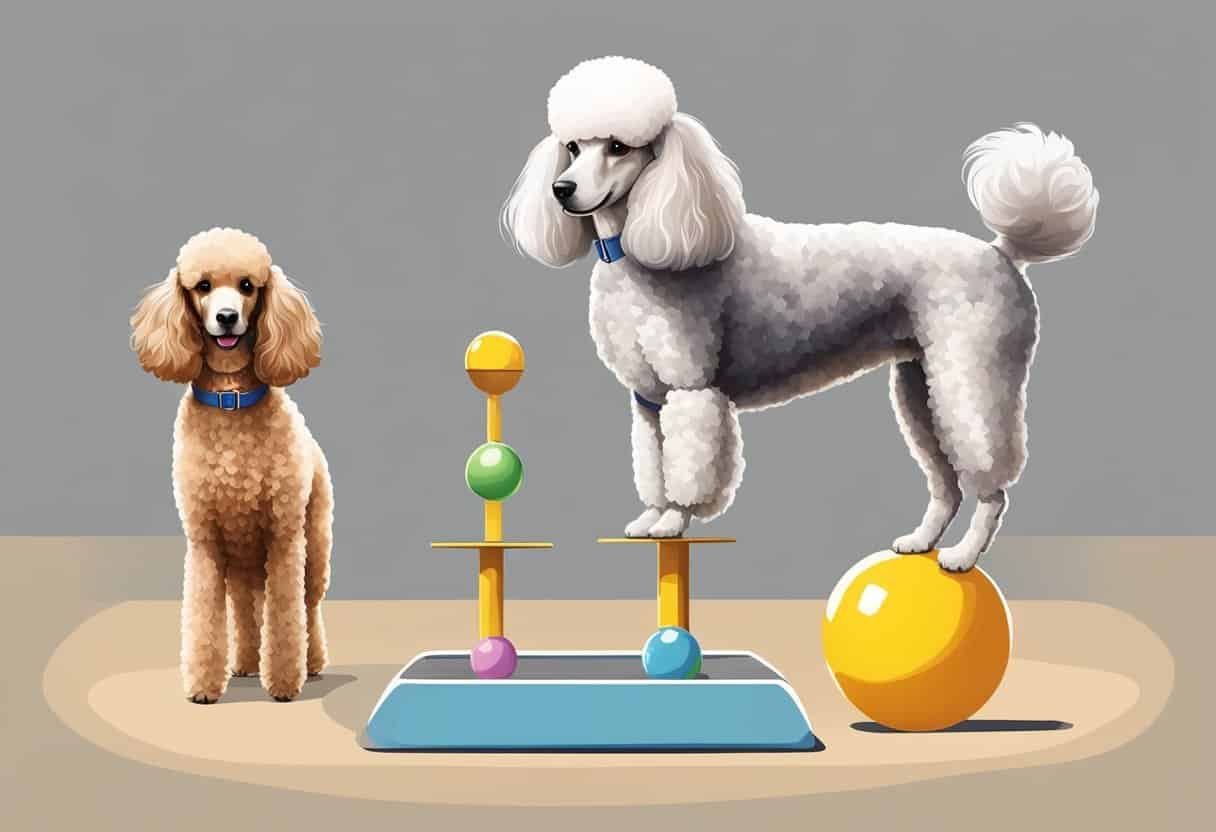
When training your Poodle, it’s crucial to focus on their nutrition and health to ensure they have the energy and vitality needed for learning.
Nutrition: Choose high-quality dog food that provides a balanced diet tailored to your Poodle’s age, size, and activity level. Your Poodle’s diet should have the right balance of proteins, fats, carbohydrates, vitamins, and minerals. Look for foods that list meat as the first ingredient and avoid fillers that do not provide much nutritional value.
Water: Always provide access to fresh, clean water to keep your Poodle hydrated, especially after training sessions or exercise.
| Nutrient | Benefit |
|---|---|
| Protein | Supports muscle growth and repair |
| Fats | Provides energy and supports coat health |
| Carbohydrates | Offers energy and aids in digestion |
| Vitamins & Minerals | Essential for immune health and metabolic processes |
Rewards: Use healthy treats as rewards during training. Opt for nutritious options and remember to factor these additional calories into your Poodle’s overall diet to prevent weight gain. Treats should not make up more than 10% of your dog’s total calorie intake.
Remember, every Poodle is different. Pay attention to your dog’s response to their diet and adjust as necessary. If you notice any adverse effects, consult your veterinarian for advice on your Poodle’s nutritional needs. Proper nutrition and hydration are the bedrock of a healthy training regimen and overall well-being for your Poodle.
Advanced Training Challenges
As you progress in training your Poodle, you’ll encounter various challenges that require a tailored approach. Start by recognizing the importance of problem-solving skills. Your Poodle is intelligent and will benefit from complex tasks that require thinking. Introduce puzzles and games that compel your Poodle to use their noggin, turning potential stubbornness into cognitive victories.
- Distractions: Poodles may get distracted by their environment.
- Solutions:
- Practice in different settings.
- Gradually introduce more distractions.
- Solutions:
Bad habits can be a hurdle. Perhaps your Poodle jumps on guests or barks excessively. Address these behaviors with clarity, using firm commands and consistency. Replace unwanted actions with desirable ones through positive reinforcement.
- Frustration: Both you and your Poodle may experience this.
- Solutions:
- Keep sessions short and sweet.
- End on a positive note to encourage both of you.
- Solutions:
Your approach should also include a level of flexibility. Training isn’t one-size-fits-all, and your Poodle’s unique personality means you may need to adapt techniques to fit their learning style.
Frequently Asked Questions
Advanced training goes beyond basic commands, focusing on mental stimulation and obedience that challenge your poodle’s intelligence.
What are some unique tricks to teach a poodle for advanced training?
To expand your poodle’s repertoire, consider teaching advanced tricks such as playing dead, spinning in circles, or even tidying up toys. These tricks provide mental stimulation and showcase their agility.
How can I train my poodle for advanced obedience?
For advanced obedience, reinforce commands like ‘stay’ with distractions, practice off-leash walking in safe areas, and introduce new commands that require more precise actions and increased self-control.
What are the most challenging commands to teach during advanced dog training?
Commands such as ‘wait’ at the door, ‘leave it’ with tempting distractions, and ‘quiet’ on cue are among the most challenging, requiring patience and consistent reinforcement.
Where can I find intermediate dog training classes suitable for my poodle?
Look for local pet training centers that offer intermediate classes designed for intelligent breeds like poodles, ensuring they provide a mix of obedience, agility, and socialization activities.
How do you handle advanced training for a stubborn standard poodle?
Handling a stubborn poodle requires firmness and consistency. Use positive reinforcement and vary your training techniques to keep sessions engaging and rewarding for your pet.
Can you recommend some tactical dog training commands for poodles?
Yes, tactical training could include commands like ‘search’, ‘speak/alert’, and ‘rescue/find’. You can also teach them scent-related tasks that leverage your poodle’s natural abilities.

